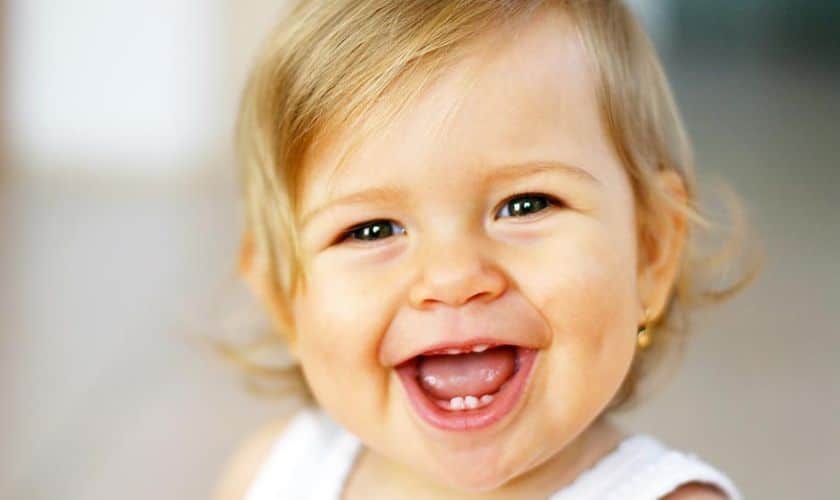As a parent, it’s important to understand the importance of baby teeth care. From eruption to cleaning and proper retention, some steps must be taken to ensure your child’s teeth remain healthy and strong. Let’s learn more about baby teeth care and its importance.
It is essential for the general health of your child that you take care of their teeth from an early age.As a parent, you want to ensure that your child has healthy teeth and gums for years to come. From understanding the eruption process and proper cleaning techniques to knowing when and why baby teeth should be retained, let’s dive into the basics of baby teeth care.
When Do Baby Teeth Erupt?
Baby teeth begin erupting around six months old. However, each child is different, so it’s important to look for signs that indicate eruption. The first tooth typically erupts in the lower front tooth (central incisor), followed by the upper front tooth (central incisor). After these two teeth erupt, other teeth appear in pairs on either side. Typically, all 20 primary teeth erupted by age three.
How Should I Clean My Baby’s Teeth?
It’s important to clean your baby’s teeth as soon as they appear with a soft-bristled toothbrush designed specifically for infants or toddlers. Avoid using adult brushes because they can be too abrasive on your baby’s delicate gums and cause irritation or damage. You only need toothpaste if your child is over two years old. Then, use water on the brush until enough saliva is produced naturally from chewing food or sucking on a pacifier.
Once your child turns two, you can use a pea-sized amount of fluoride-containing toothpaste when brushing their teeth twice daily for two minutes each time (especially after meals). It’s also important to floss once per day once all primary teeth have erupted to remove debris or bacteria between them. Make sure you monitor your little one while brushing and flossing for them to learn good oral hygiene habits early on!
Should I Retain My Child’s Baby Teeth?
Retaining baby teeth may be necessary if permanent ones aren’t replaced appropriately due to trauma or congenital agenesis(missing permanent tooth). If this happens before puberty, space maintainers will be used to keep the space open until the permanent tooth eventually appears—this allows room for healthy jawbone growth and prevents movement of adjacent permanent teeth into the space left behind by a missing primary tooth. Furthermore, retaining baby molars can help prevent crowding since children tend to lose these back molars earlier than their adult counterparts—this gives more room for adult molars when they eventually erupt later down the road!
Eruption
The first step in understanding baby teeth cares to track the teeth’ eruption. The first primary tooth usually erupts around six months old but can vary by several months either way. It is important to keep an eye on when the tooth erupts to ensure it is healthy and strong. Contact your dentist immediately for advice and guidance if a tooth does not erupt as expected.
Cleaning
It is important to begin cleaning your baby’s gums before they erupt from the gum line. You can use a warm washcloth, a gauze pad with water, or a dental wipe designed for infants to clean their gums after feeding or during bathtime. Once a few teeth have erupted, you can use a soft-bristled brush with water only at least twice per day (morning and night) to brush all visible surfaces of the teeth until they are old enough for fluoride toothpaste (which is typically ages 2-3).
Retention
Retention of baby teeth is also very important as this help maintain space for adult teeth when they come in later down the road. This means that even after primary teeth are lost due to decay or injury, your child should still get them fixed if possible so they do not fall out prematurely, causing crowding issues later on down the road when permanent adult teeth start coming in. Early loss of primary molars may also affect speech development so keeping these until natural exfoliation occurs (around age 6-7) is essential for proper development as well as positioning of permanent adult molars later on down the road.
Conclusion:
Caring for your little one’s pearly whites doesn’t have to be intimidating—you need knowledge! Now that you know more about eruption times, proper cleaning techniques, and why retaining certain baby teeth may be necessary, you can help ensure that your child has strong and healthy oral health throughout their lifetime! If you have questions about caring for your little one’s smile, contact us at our dental clinic today! We’d love to help guide you through this journey!
